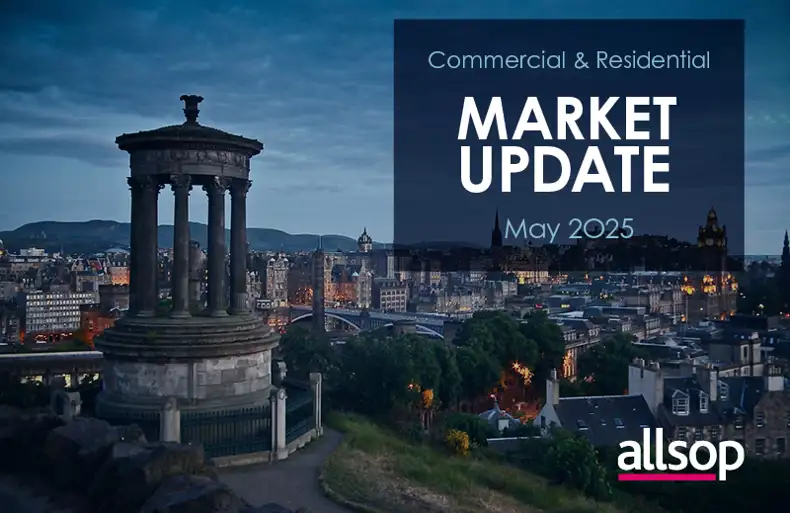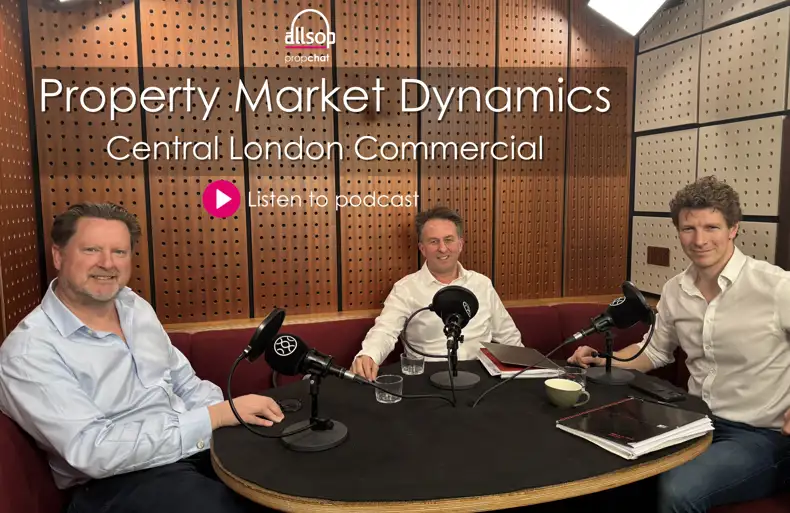Blog | Investment | The Property Market | Technology
When real becomes meta: real estate enters the metaverse

The property world loves a good buzzword. From ‘flight to prime’ and ‘weight of capital’, concepts like ‘the metaverse’, ‘Web 3’ and ‘NFTs’ (non-fungible tokens) are the latest to take the sector by storm.
After Facebook made the strategic decision to rebrand itself as Meta, there has been a significant uptick in people’s interest of the ‘metaverse’. From artists like Snoop Dogg to companies such as Nike, Adidas and Walmart, this emerging digital world has captured the imagination of some, and mystified others. Whilst it’s in very early days of its development, it begs the question of what is the metaverse and how can the real estate sector position itself to benefit from this new world?
So…what is the Metaverse?
Originally coined by Neal Stephenson in his 1992 novel Snow Crash, describing a 3D virtual world inhabited by avatars of real people, the metaverse is far from a new concept and the lines are very much blurred as to what it will eventually look like in the future. Some believe it will be the place where we all interact, trade, shop and socialise much like we do in the real world. Others like Microsoft are betting its growth will be interwoven with advances in video games. Others even think it could be the technology to one day replace mobile internet.
Today, the metaverse can be defined as a simulated digital environment that uses augmented reality (AR), virtual reality (VR) and blockchain to create spaces for immersive user interaction.
The key to the recent explosion in this topic is the individual growth of each of the three core elements. VR and AR have seen significant advances in technology and affordability, whilst blockchain has enabled digital currencies, gaming tokens and NFTs to create a world where digital ownership of products, land and real estate has become possible.
A good example of this is the metaverse game, Decentraland, which has taken the real estate world by storm, as investors have been snapping up plots of land – in some cases, for millions of pounds.
But, why on earth would someone pay millions of pounds to own land in a virtual world?
Much like the traditional real estate market, landowners will be able to capitalise on commercial opportunities and occupier demand (of sorts). For businesses, it creates a unique opportunity to create digital storefronts, host events and create exciting new concepts to advertise to a younger, more digitally native audience. For owners, it provides cash flows much like traditional buildings.
Mark Gord, CEO of Metaverse Group explained that whilst major cities like New York and London have tens of millions of people, it is not unreasonable to suggest there could be over 100 million people active on a platform like Decentraland at any one time. This creates incredible marketing opportunities for businesses to attract the next generation of customer, with the added benefit of significantly reducing overhead costs as real-world physical boundaries are removed.
This creates an opportunity for landowners to operate much like the traditional property market. By owning and operating virtual land, companies can deliver high yielding cash flows to their investors through leasing space, providing advice on how to build stores within the metaverse and assisting in disposal and acquisition transactions.
Is it realistic to think virtual real estate could become a commercial grade asset class?
Sales of virtual real estate topped $500 million in 2021 with predictions that the market will reach $1bn in 2022. If this growth continues, it could become unavoidable that commercial real estate in the metaverse becomes a serious asset class.
Much like any investment, property fundamentals like location and footfall play a crucial role in the metaverse. Finding value in virtual real estate will come through picking the platforms that capture the imagination of the younger generation, whilst providing significant commercial opportunities for businesses to enter the space through content marketing and advertisement.
Although mass adoption is still a long way off, should the metaverse take off then it will present a whole new commercial asset class where barriers to entry and ownership are far more efficient, transparent, and truly global in reach. Could Allsop pioneer the first physical property auction in the metaverse? Could we see George Walker don a VR headset and sell virtual land to bidders across the world?
The answer right now may be no. But, if we see continued growth in the sector, investors begin to see the market as commercial grade and everyone comes to own a VR headset, even the most unimaginable concepts could become a reality in the metaverse.
Are you sold on digital real estate in the metaverse yet?
If so, here’s a brief explanation of how to buy virtual real estate.
Investment in virtual real estate occurs through the purchase and exchange of nonfungible tokens (NFTs). These are non-interchangeable units of data, stored on the blockchain behind smart contracts that enable items to be sold and traded with a cryptocurrency of the vendor’s choosing. To own an NFT you must have a digital wallet. This allows you to store NFTs on the blockchain ledger which can be traced providing a clear record of ownership. NFTs can be anything from art collectibles to elaborate mansions built in the metaverse. Smart contracts are like the title documents underpinning the ownership of a building. In the case of NFTs, they underpin the functionality of the NFT.
What has attracted the attention of the real estate sector is the speed and traceability of ownership with these concepts. They present the possibility of transferring assets with a push of a key on a fully traceable decentralised blockchain ledger. Anybody validated through the blockchain with enough cryptocurrency in a wallet could log in to Opensea and purchase available land in various metaverse platforms. You could complete the entire process on your mobile if you so wished.
Related Insights

All Magazine Summer issue – All the News, All the Views
Topical news and views from Allsop

Allsop lifts the trophy for Commercial Agency of the Year at PROPS Awards
The PROPS Awards, recognises and celebrates individuals and companies that have excelled in the property sector while raising...

Allsop May 2025 Property Market Update
An overview of our thoughts on the market, looking at its varying performance, sector by sector in the markets we operate in.

Podcast: Property Market Dynamics - Central London Commercial
Want to know more or would simply like some advice? We hope you find this podcast useful. If you want to know more about topi...